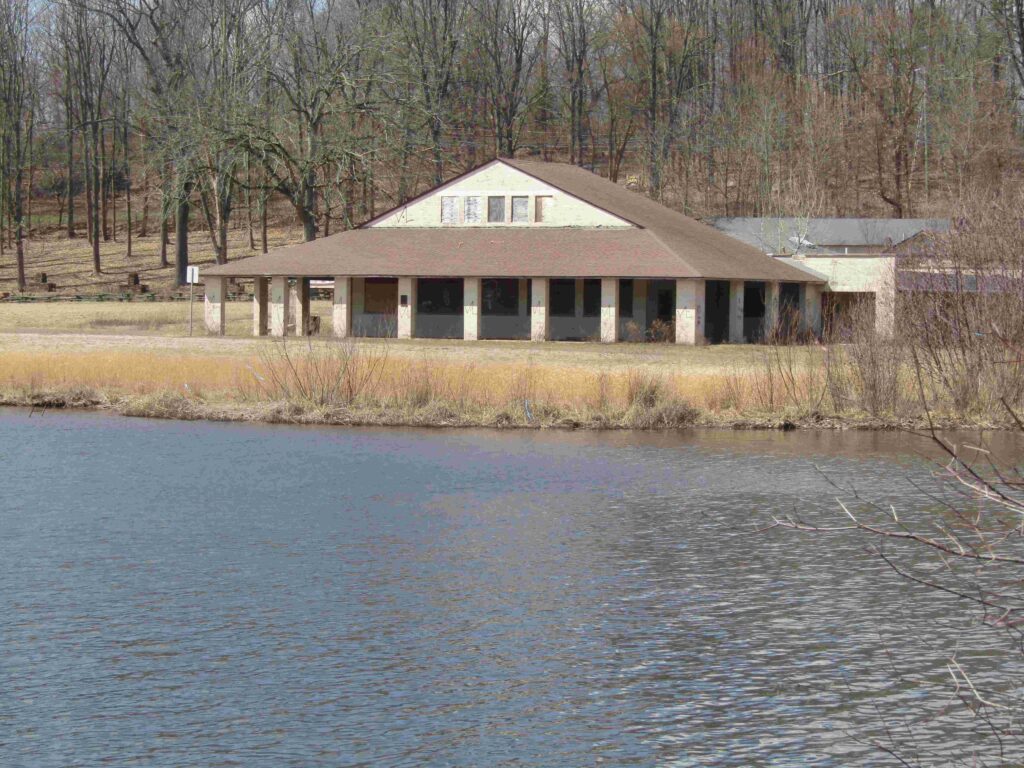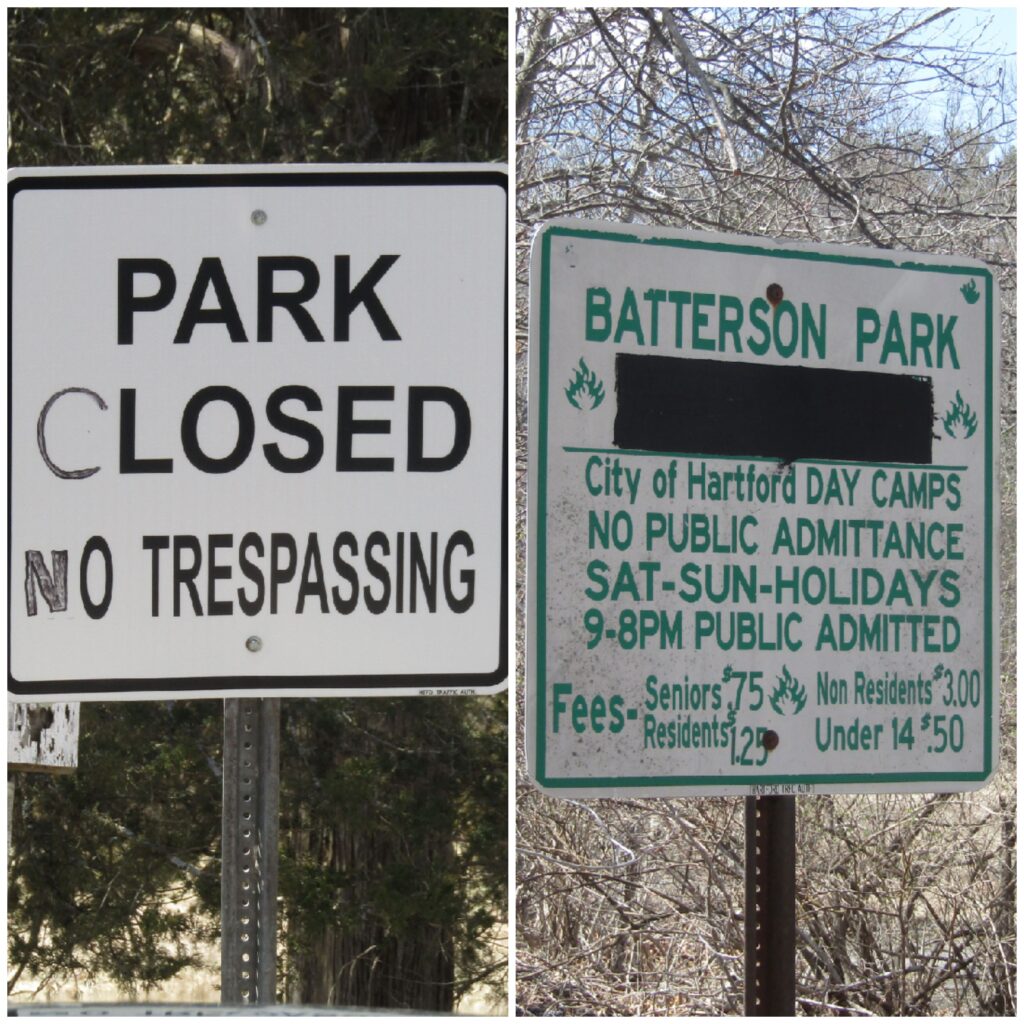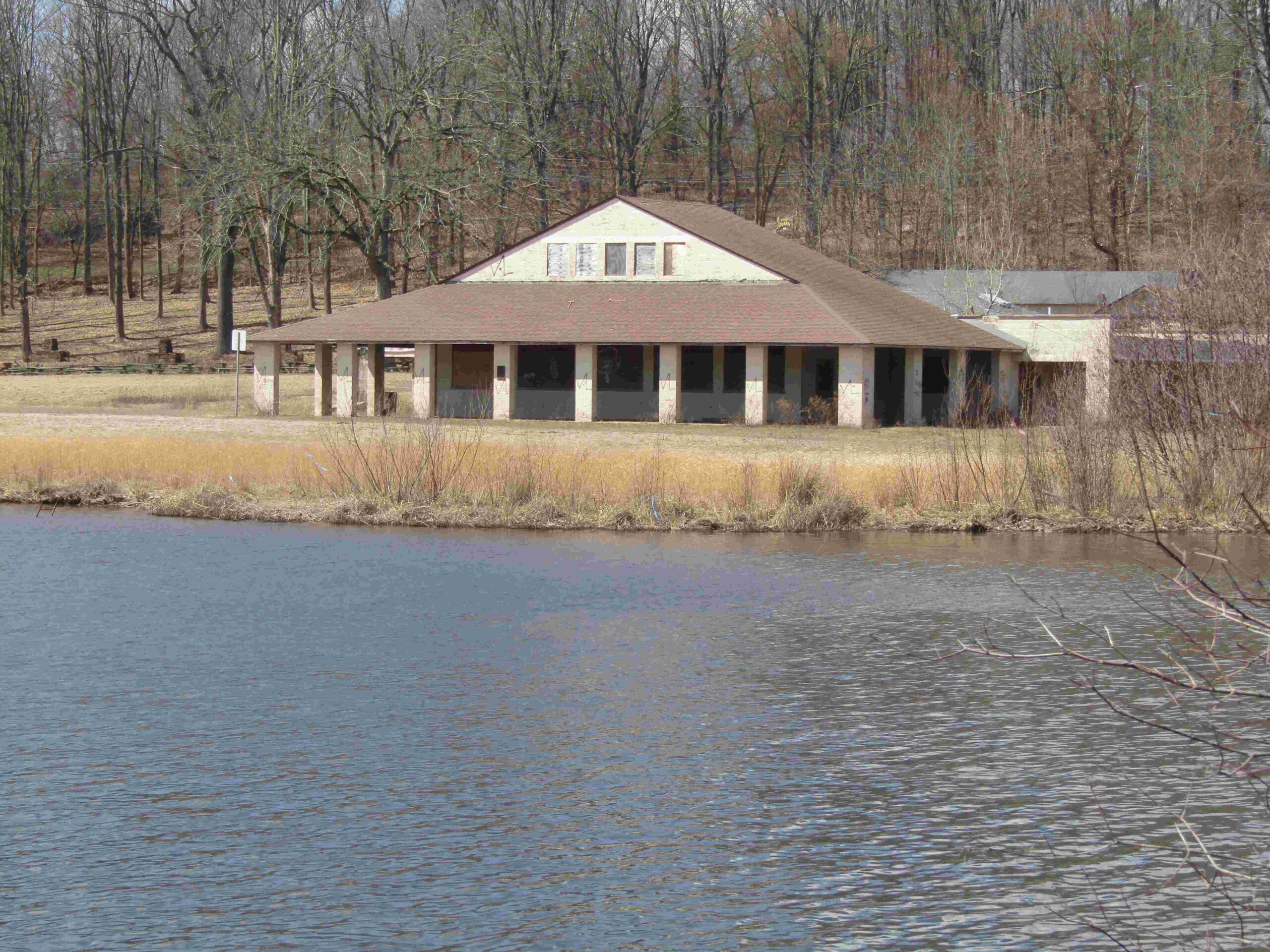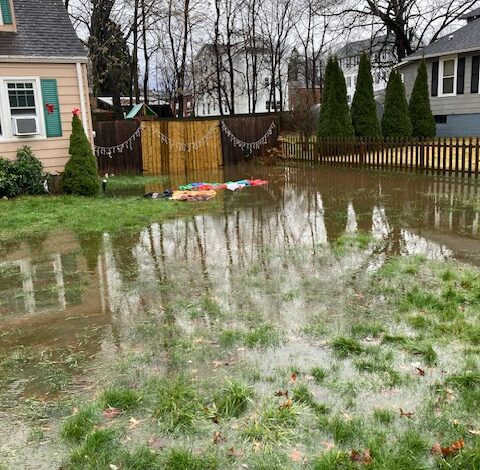State Park Status Can Bring Abandoned Recreation Area On Farmington-New Britain Line Back To Life
By John McNamara
Will Batterson Park, the abandoned recreation area and pond shared by New Britain and Farmington and owned by the City of Hartford, become Connecticut’s 91st state park?
Last week State House Speaker Matt Ritter of Hartford picked up the pieces on a stalled 2021 plan proposed and funded (Don Stacom, Hartford Courant) but never launched.
NB Politicus
Two years ago the General Assembly at Ritter’s behest approved $10 million to refurbish the park. That wasn’t enough, however, to bring the three communities together to jointly oversee the revival of an accessible recreational area that has mostly been a little used natural buffer between urban New Britain and affluent Farmington. On the New Britain side of the park are Batterson Drive waterfront homes. On the Farmington side is Batterson Park Road and Hartford’s Camp Courant, the 129-year-old day camp for Hartford youth established by the daily newspaper.
In a state of 169 cities and towns often doing things 169 different ways it was too much to ask. Sharing services and regional solutions are hard to achieve in the “two Connecticuts” where the socio-economic-racial divide is often enforced at the town level and cities like Hartford and New Britain govern in an unsustainable finance and tax system. That explains best why a tri-town plan to revitalize and then maintain the park was not going to work.

Credit Speaker Ritter for persistence. He’s starting over with the state park idea that means a sandy beach, concessions, boat launch and fresh air amenities may soon be accessible to all in central Connecticut. A state park will not be subject to any town-imposed restrictions on public use that shamefully are in force in some “Gold Coast” towns on the shoreline. According to Ritter no one will pay a fee to enter Batterson State Park. The state’s Passport for Parks program ensures a free to all policy. Presumably the same $10 million appropriated in fiscal year 2022 is still available. With the passage of time, it may take more money that Governor Lamont and legislative leaders will have to work out as the state administration sits atop record surpluses. At his press conference on March 23rd Ritter said the addition of Batterson would be the first one of any significant size to the state park system in the last 15 years.
Last week Ritter spoke with the same passion for making the park a summer destination for Central Connecticut residents, including Hartford and New Britain residents, as he did two years ago when he proposed the original legislation:
“It is completely inappropriate. It is completely unacceptable that just a few miles from the city of Hartford or New Britain, where some of our poorest residents live, that we took an open space – dedicated in the 1920s to give families a chance, without driving to a beach an hour and a half a way, to come with their families and sit outside, to swim, to play basketball – that we let it get to this. I will use the power of my office in the time that I have in politics to right that wrong.”

Joining Ritter at his press conference were Farmington Town Council President J.R. Thomas, New Britain Mayor Erin Stewart and Hartford Mayor Luke Bronin. Not surprisingly all are on board with turning the open space into a state park that would absolve their governments of any shared costs and responsibilities. “What became abundantly clear,” said Ritter. “This isn’t a municipal asset. This is a state treasure.”
Batterson, located 10 miles from Hartford and once part of the capital city’s watershed, has been looked at as a lucrative asset for Hartford’s cash-strapped city government from time to time. Of the more than 600 original acres parcels have been sold off for the highway (I-84) and private development through the years but the 165-acre pond and remaining space is owned by Hartford. It remains readily adaptable to recreation.
If Matt Ritter’s new plan to correct what he called an “environmental injustice” succeeds, Batterson Park will finally get a new life for its intended uses.
This post originally appeared in http://nbpoliticus.com




